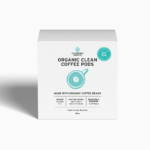How many times have you been told to reduce your salt intake? If you’re eating too much of it, that’s fair enough. But if you’re using salt as a condiment, then don’t change the amount you’re using – change the kind of salt you’re using.
Very few foods have been vilified like salt, saturated fat, sugar and now animal protein, yet each one of these foods have been in the diet for a lot longer than the disease they supposedly cause. It’s not so much the food that is the problem but what we’ve done to it.
Sodium, one half of salt, is an essential nutrient: It’s vital for cellular function, nutrient absorption in the digestive tract, kidney health, adrenal function, and cardiac health. Sodium is an electrolyte, it plays a role in maintaining a normal blood pH, regulating the amount of water in your body, conducting nerve impulses, and controlling muscle contractions including your heart muscle. Other electrolytes include, magnesium, potassium, calcium chloride and phosphorus, these are all found in unrefined salts.
Electrolytes are important for; conduction of your heart beat and contraction of the heart muscle, they help dilate and contract blood vessels, they conduct nerve impulses, maintain internal pH levels, keep you hydrated, contribute to gastrointestinal movement, help you contract your muscles and prevent cramps, they are part of filtration in the kidneys and are important in the passage of water into cells and contributing to the electron transport chain which results in more energy. Without these wonderful nutrients you would not function and death would be evident.
If salt and all of the components are so important then why are we being told to reduce it? The usual criticism against salt is that too much of it causes hypertension (raised blood pressure), in turn elevating the risk of a heart attack or stroke. But research shows that this may not be correct. A 2014 Cochrane review of eight trials showed that reduction of salt had only a weak benefit for cardiovascular events and deaths and no significant benefit in overall mortality.
Not all salts are the same – how to pick the right one
The refined table and cooking salt we use is almost completely devoid of nutrition: it is a chemical substance which can contribute to oedema, excess weight, high blood pressure, kidney disease, liver congestion and arteriosclerosis, as well as muscle weakness and calcium store depletion.
During the refining process, up to eighty-two trace minerals and essential nutrients are destroyed by the 1200-degree heating process, leaving only one compound – sodium chloride.
When I was in Namibia several years ago I walked across an old ocean salt plain which was used to collect salt, it was littered in plastic from the Atlantic Ocean. So unless the plastics and micro plastics are filtered out much of the ocean salts today have dubious chemicals that may not be on the label.
But it’s not only what is left in the salt and what the manufacturers take out during the refining process; it’s also what they put in. The additives are bleaches and anti-caking agents, such as calcium phosphate monabasic (341), sodium aluminosilicate (554), and aluminium calcium silicate (556). And if the salt is iodised, potassium iodate is added in white powdered form. If the potassium iodate is not stored properly either before the addition to the sodium chloride or after then much of the iodine dissipates out into the air.
But you don’t have to eat refined salt. Take a trip to your nearest health food store or the health food section of your supermarket and pick up some unrefined sea salt (check where it is sourced) or Himalayan rock salt. It’s not sparkling white like refined salt, but it’s better for you.
Most salts contain very little iodine, an important mineral essential for health, and especially for the integrity and health of the thyroid and required by every cell in your body. Many soils are deficient in iodine, therefore the food grown in these soils is also deficient. The best sources of iodine are seaweeds such as kelp, nori, wakami, dulse and the like. Combining sea salt with finely chopped seaweed will ensure you get an adequate supply of iodine and the other essential minerals for health. At Changing Habits we have created a mix of Himalayan salt and dulse, a condiment rich in 86 minerals including iodine, iron and DHA. Iodine is not a stable mineral and it can leach not only from the fortified refined salt but also the seaweed, so it’s important to keep this seaweed salt in an airtight container.
How To Identify Hidden Salt
Apart from the obvious salt names on the ingredient list here are other refined salts to be aware of; Disodium guanylate, disodium inosinate, sodium bicarbonate, sodium nitrate, sodium citrate, sodium chloride, sodium diacetate, sodium erythorbate, sodium glutamate, sodium lactate, sodium lauryl sulfate, sodium metabisulfite, sodium phosphate trisodium phosphate. As you can see the current theme is sodium.
How Do I Get My Salt
If you’ve been following me for a long time, you will know that I ocean swim nearly every morning at my local beach, summer and winter. And every morning I gulp 2 large mouthfuls of sea water to make sure I’m getting my daily salt allowance. I also use my seaweed salt for my meals as needed. Hot tip, if I have red eyes or an itchy nose I take 1/8th tsp of seaweed salt and 500ml of water and very quickly they disappear.
Histamine and Salt
I first learnt this trick from a friend who did it and I watched before my very eyes her red eyes and itchy nose disappear shortly after her taking the salt and water. She explained to me that she had read a book called, Your Bodies Many Cries For Water by Dr F Batmanghelidj MD, who had suggested this potion due to histamine being part of the salt water regulatory system in the body.
How much salt is enough?
The dietary guidelines, which are outdated from the latest research on salt, recommend 1600mg sodium a day (5 gms salt is just under 1 tsp) they would like to see about 1/3 tsp achieved. Research has shown that there is a “J-shaped relationship” between cardiovascular risk and sodium. This means that low-sodium diets and very high-sodium diets both carry a higher risk of heart disease. This J shaped curve of salt intake is shown evidently in predicting outcomes of hospitalized patients with COVID.
Salt and Covid
A study in early 2021 showed that abnormal sodium levels in hospitalised patients with COVID predicted death or respiratory failure. Too much salt in the blood increased the risk of respiratory failure or dying by three-fold. Too little salt was associated with an increased need for intubation (respiratory ventilator) or other means of advanced breathing support as opposed to those with normal salt serum levels. The right amount of serum salt predicted a better recovery.
The way I see the salt dilemma is fairly simple. If I cook oats with no salt or too much salt I can’t eat it, there seems to be a sweet spot that is just right. The same with all foods you salt and don’t salt, some food is fine without any salt other foods need it. By cooking from scratch and not using ultra processed foods or any packaged multi ingredient foods with hidden salts, your salt needs will be attended to by your taste buds. It’s not salt that causes disease it’s a lifestyle of poor eating habits and other important factors like a lack of sleep, movement, connection and sunshine which ultimately causes all disease.
Put the wrong ingredients into your body and you will have an epic failure with your health, put the right ingredients in and the body with it’s innate intelligence will use those ingredients for the best of health.
It’s not the salt that is the issue it’s what we’ve done to salt. Choose a healthy unrefined salt for all your cooking and health needs.
Cyndi









0 Comments